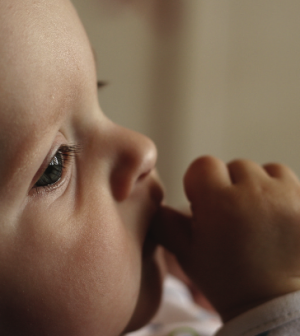- Belgium comes to Yamashita Park
- Residential Villa in Phuket Entices Remote Workers With Long-Stay Rates
- Rare pieces of French glass art at the Mirai Museum of Art
- Feast on fresh fish and seafood at the 2024 ‘Sakana’ Festival
- Would you like to ride in a Louis Vuitton gondola lift?
- Naked Snow Aquarium
- Festive lights at Yomiuriland will get you feeling the holiday vibes
An age to age guide to preparing your child for school

After nine months of life in a mother’s womb, a baby arrives into the world to experience his first interaction with his primary caregivers, dad and mom. The formative or early years (ages 0-5) of a child is such an important time in his physical and emotional development.
What should parents do to raise a socially competent child to fit in school and later in society? What actions, attitudes block the socialization process and disrupt its development?
An infant’s first attempt to communicate with others is seen through two passive phases: imitation and identification. A child will first repeat or mimic sounds he hears or imitate a gesture.
By the time he turns 16 months old, these sounds and gestures will have been stuck to his memory.
A young girl playing with dolls for example will pick up words and phrases used by her mom. Sounds familiar? Read on…
0 to 6 months
Are social skills acquired before birth? It is well known that the fetus distinguishes the voice of parents long before he is born. At 3 months old, he has the ability to know the difference between his father and mother as expressed in gestures like waving his little feet as dad comes home. The baby closes his eyes in contentment as he is cuddled and tickled by his mom.
This is the age where he first displays responsiveness by flashing his angelic smiles.
6 to 12 months
His vision and hearing develop. He is eager for contacts. You will notice his worshipping gaze at his big brother and sister whom he looks up to for social stimuli. At eight months old, the baby shows signs of separation anxiety when drawn apart from mom. This is not a cause of great concern. Paradoxically, it is a normal step to socialization. Between nine and twelve months old, the baby is attracted to familiar faces signaling the start of an association. Give him time. Encourage dad to play with his toddler without forcing mom to stay close by. Your baby at this stage is fond of tickling, rhymes and baby talks.
Some psychologists advise parents not to engage in too much stimulation during the baby’s tender age. Give him some space while you clean the bathroom, change nappy, prepare the formula, etc. Through this brief absence, the more he will want to communicate with you .
12-24 months
At 12 months, the child is eager for relationships. An encounter with another child of the same age is valuable because then he is immersed in a relationship different from the family. Creating these relationships will have a significant impact on the socialization process he explores. In interacting with others, he communicates his emotions by expressing who he wants or does not want as friends! Help expand his inner circle, by introducing him to new objects and people – an important phase
where he seeks response! It is essential at this age to establish a language.
Parents should avoid conflict with others. Encourage your toddler to come into contact with others, but do not force him to lend his toys or copy a behavior. Toddlers at this age become possessive with their toys. Just make him understand that he has to earn a good relationship. Remind him that if he wants to borrow a friend’s toy, he should also lend his.
2-3 years
At this age his vertical connection with mom and dad, and horizontal with big brother and/or sister become clear. The family atmosphere will help to structure social relationships and feelings vis-a-vis the other, including compliance to authority. He is not quite ready to form real friendships at this stage. He will be shy. It is a good time to put him in daycare or pre-school to stimulate his socialization skills even for a few hours a day. This will help prepare his for kindergarten.
3-4 years
First friendships happen during this age range as they move to kindergarten. A significant evolution of the child is seen from how he is perceived as he interacts with friends at school. In school, some are looked up to by the others as the “talented” one, others the “popular”, etc, Generally, the one who speaks well is regarded as the “chieftain”. Friendships start with “collaboration”. Eating packed lunch together, sitting side by side, doing preschool work together all help reinforce “closeness”. Worry if your child is alone and has no comrade by his side.
4-6 years
This is a good time to stimulate his team spirit. Put him in after-school activities such as dance, judo, karate, swimming, etc. This will expose the child to new rules outside of school and home that will help him refine his relationships. Here, he will learn to lose, win or be the average kid. He will also discover his interests among others. Encourage your child to join a competition or be a part of a sports team to allow him to experience his emotions.













